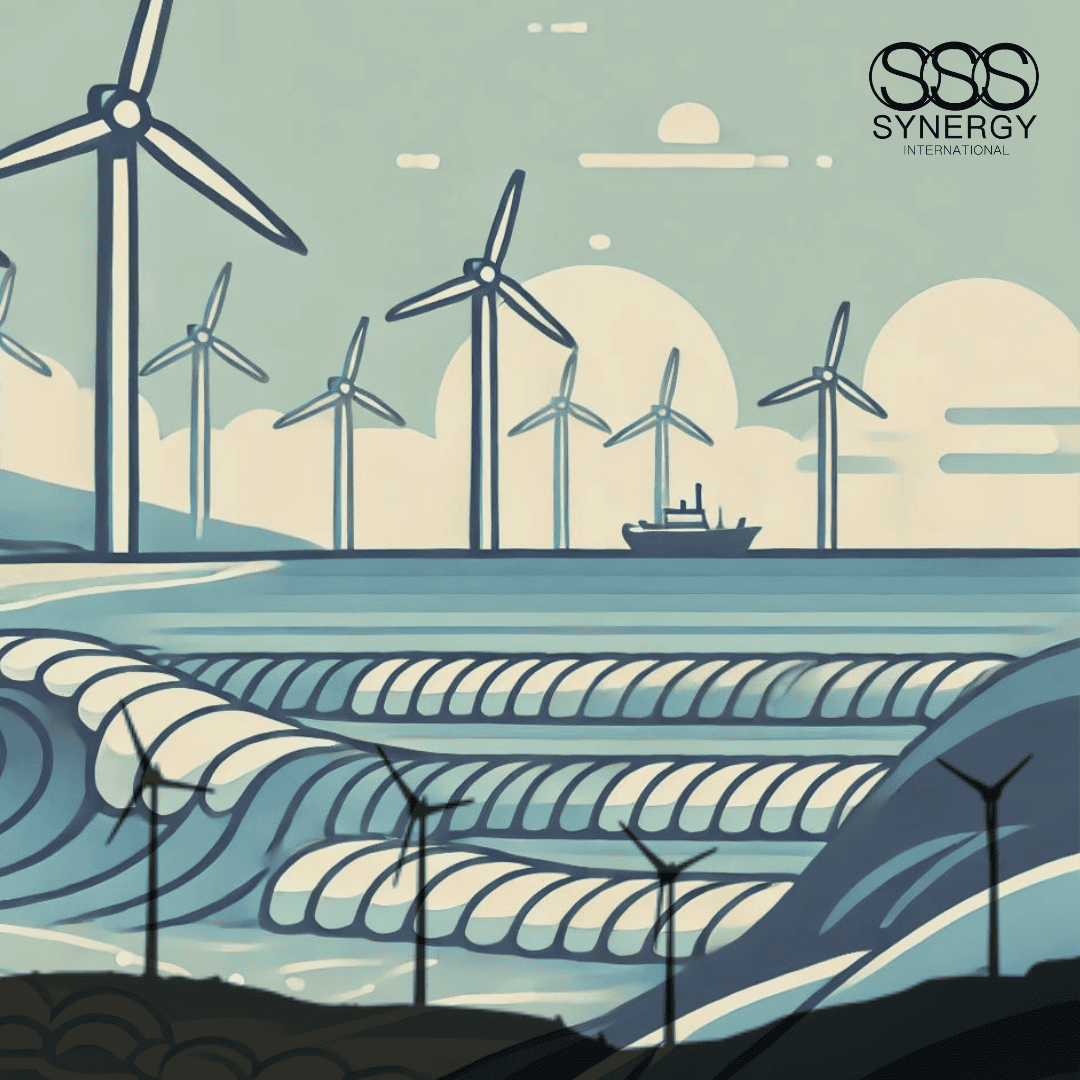Green Energy and Climate Change

As humanity navigates the 21st century, we are increasingly confronted by the realities of climate change and the approaching limits of our planet's resources. The concept of planetary boundaries, introduced by scientists to describe the environmental thresholds within which humanity can safely operate, has become a critical framework for understanding the global challenges we face. As we approach or exceed these boundaries, the stability and resilience of Earth's systems are at risk, posing unprecedented challenges to ecosystems, economies, and societies worldwide.
How Green Energy and Climate Change Go Together
Green energy and climate change are intrinsically linked, as the transition to renewable energy sources like solar, wind, and green hydrogen is essential for mitigating global warming. By reducing reliance on fossil fuels, which are the primary source of greenhouse gas emissions, green energy significantly lowers the carbon footprint of power generation, transportation, and industry. This shift not only helps curb rising global temperatures but also supports global climate goals like the Paris Agreement, making green energy a cornerstone in the fight against climate change.
Confronting Global Challenges: The Impact of Climate Change and Planetary Boundaries
The planetary boundaries framework identifies nine key Earth system processes that regulate the stability and resilience of the planet. These include climate change, biodiversity loss, land-system change, freshwater use, and chemical pollution, among others. Crossing these boundaries can trigger abrupt and irreversible environmental changes, threatening the sustainability of human life on Earth.
Currently, scientists estimate that we have already exceeded several of these boundaries, particularly in areas like climate change, biodiversity loss, and nitrogen cycle disruption. The implications are profound: as we push beyond these limits, we risk destabilizing the Earth's regulatory mechanisms, leading to cascading effects that could undermine global food security, water availability, and the health of ecosystems.
Climate Change: A Pressing Global Crisis
Climate change is perhaps the most visible and immediate of these challenges. Driven by the excessive burning of fossil fuels, deforestation, and industrial agriculture, global temperatures are rising at an alarming rate. This warming is already manifesting in more frequent and severe weather events, such as hurricanes, droughts, wildfires, and floods, which are devastating communities and economies around the world.
The consequences of unchecked climate change are far-reaching. Melting polar ice caps are contributing to rising sea levels, threatening coastal cities and low-lying regions with inundation. Shifting climate patterns are disrupting agricultural productivity, leading to food shortages and exacerbating hunger in vulnerable populations. Additionally, the loss of biodiversity and ecosystems, which play a crucial role in regulating the climate, further diminishes our planet's capacity to mitigate these changes.
The Socioeconomic Impacts
The global challenges posed by climate change and planetary boundaries are not just environmental—they are deeply interconnected with social and economic systems. As natural resources become scarcer and ecosystems degrade, the competition for resources like water, arable land, and energy intensifies, leading to increased conflict, migration, and inequality.
Developing countries, often the least responsible for global emissions, are disproportionately affected by climate change. These nations face greater risks of extreme weather events, health crises, and economic instability, with fewer resources to adapt and respond. This inequity highlights the urgent need for a just transition to a sustainable future, where the burdens of climate change are shared fairly, and vulnerable communities are supported.
The Path Forward: Urgent Action and Global Cooperation
Addressing the challenges posed by climate change and planetary boundaries requires a fundamental shift in how we manage our relationship with the Earth. This includes transitioning to renewable energy, promoting sustainable land and water use, and protecting biodiversity. It also necessitates reducing our consumption of resources and rethinking our economic models to prioritize long-term sustainability over short-term gains.
Global cooperation is essential to tackle these challenges. International agreements like the Paris Agreement on climate change represent crucial steps in the right direction, but they must be strengthened and implemented with greater urgency. Governments, businesses, and civil society must work together to develop and deploy innovative solutions, from clean energy technologies to nature-based solutions that restore and protect ecosystems.
As we confront the dual crises of climate change and planetary boundaries, the stakes have never been higher. The decisions we make today will determine the future of our planet and the well-being of generations to come. By recognizing the limits of our environment and acting swiftly to address these global challenges, we can chart a path towards a more sustainable, equitable, and resilient world. The time to act is now—before we reach a point of no return.

- Home
- Green Energy and Climate Chamge

